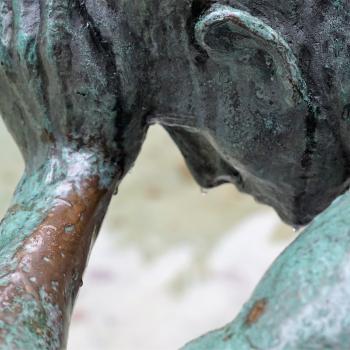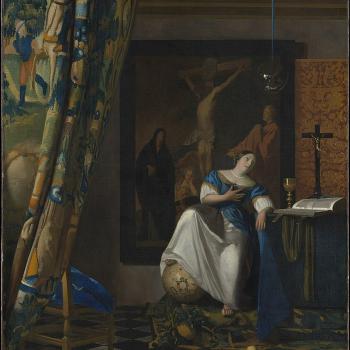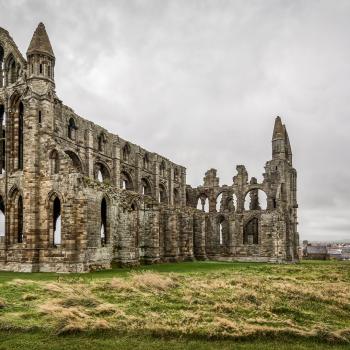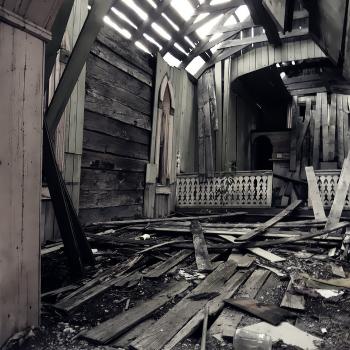
Doubt is on my mind. It really feels like an autumn topic, I think – best suited for cold winds and browning leaves and dark, heavy clouds. Not a spring topic, which seems like it should be all about cheery faith and warm devotion. But seasonally correct or not, it’s all around me.
Perhaps, however, it should belong to spring. Easter begs its attention. After all, the big questions in Jerusalem and all over Palestine in those weeks and months after Passover had to be buzzing in the streets: “Did he or didn’t he rise?” “Is he alive or dead?” “Have you seen him?” “Do you know anyone who has?” These are questions of doubt – Easter questions. Good year round; good for a lifetime.
But doubt busily breeds, day in and day out, seemingly unhampered by the pink crabapples and blue skies. The Big Question of the Resurrection generates any number of other niggling, nagging other doubts that plague me everywhere I turn. I attend a church torn apart by different beliefs, and staying together means not talking about them. I have friends who have found scoffers like Hitchens and Dawkins and Harris far more persuasive than the Gospel of John or the epistles of Paul. I work in a world of multiple religious banners, each calling on the world to salute. I am confronted with the claims of wise spiritual leaders like Desmond Tutu, who wrote, “Each religion offers a true path to God. … The God who created us is bigger than any single religion.” Really? Really? Do we wear faith like a favorite color? Is it all a matter of upbringing and personal taste?
Doubt doesn’t seem nearly so menacing when faith is parsed with pluralism. If we can allow one another all to be “right,” then there’s really no possibility of being wrong. Doubt only threatens when there might really be a “true” and a “false.” And in those contexts, doubt often looms as the Great Jeopardy.
Poor Thomas usually gets the most attention whenever Christians talk about doubt. And so many interpret his encounter with the risen Christ as a smack-down of his unbelief. Shame on you, Thomas, for being so darn empirical about your faith. (Actually, the gospels indicate that only one disciple, the “other” one, believed without seeing the risen Christ. For the others, it was only a matter of being in the right place at the right time. Thomas’ unbelief, then, was simply a delayed version of the other disciples’ unbelief.)
When we look at doubt this way, it appears to be something like the red pill / blue pill choice that Neo had to make in Matrix. The Doubt pill takes you into a bizarre world of everyday realities that now make sense; the Faith pill disguises the unknown mysteries that interpret life. Or . . . the Doubt pill robs you of the Truth and the Faith pill thrusts you into painful authenticity. One or the other.
But there are other scriptural passages that give us a fuller picture of doubt and its reality in the life of a believer. Take, for instance, the gathering of disciples before the risen Christ in Matthew 28.16-17. “When they saw him, they worshiped him; but some doubted.” Love that passage! A believer is not someone who doesn’t ever doubt. Even in worship, even at the foot of the risen Lord, even as we’re commissioned to go out with the gospel, even surrounded by the community of believers, we might doubt.
I’m not applauding doubt or relishing it. Just coming to terms with it. As a believer.
This may take me a while to think through. Stick with me.
Next posting Doubt, “Just the Facts, Ma’am”: Second Thoughts












